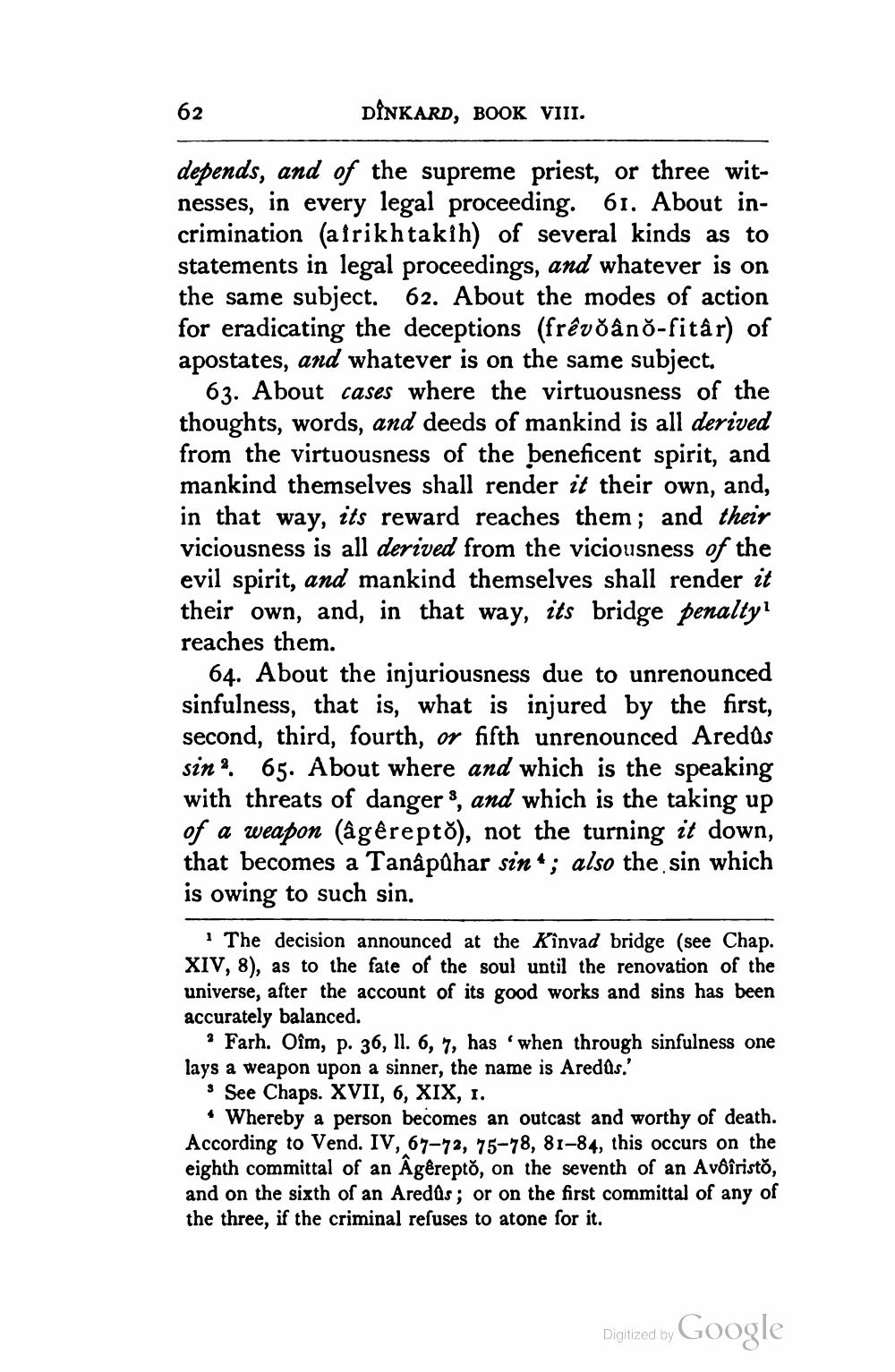________________
DINKARD, BOOK VIII.
depends, and of the supreme priest, or three witnesses, in every legal proceeding. 61. About incrimination (airikh takih) of several kinds as to statements in legal proceedings, and whatever is on the same subject. 62. About the modes of action for eradicating the deceptions (frêvŏânŏ-fitâr) of apostates, and whatever is on the same subject.
63. About cases where the virtuousness of the thoughts, words, and deeds of mankind is all derived from the virtuousness of the beneficent spirit, and mankind themselves shall render it their own, and, in that way, its reward reaches them; and their viciousness is all derived from the viciousness of the evil spirit, and mankind themselves shall render it their own, and, in that way, its bridge penalty1 reaches them.
62
64. About the injuriousness due to unrenounced sinfulness, that is, what is injured by the first, second, third, fourth, or fifth unrenounced Aredus sin. 65. About where and which is the speaking with threats of danger3, and which is the taking up of a weapon (âgêrepto), not the turning it down, that becomes a Tanâpûhar sin; also the sin which is owing to such sin.
The decision announced at the Kînvad bridge (see Chap. XIV, 8), as to the fate of the soul until the renovation of the universe, after the account of its good works and sins has been accurately balanced.
2 Farh. Oîm, p. 36, ll. 6, 7, has when through sinfulness one lays a weapon upon a sinner, the name is Aredûs.'
See Chaps. XVII, 6, XIX, 1.
Whereby a person becomes an outcast and worthy of death. According to Vend. IV, 67-72, 75-78, 81-84, this occurs on the eighth committal of an Âgêrepto, on the seventh of an Avôîristo, and on the sixth of an Aredûs; or on the first committal of any of the three, if the criminal refuses to atone for it.
Digitized by
Google




